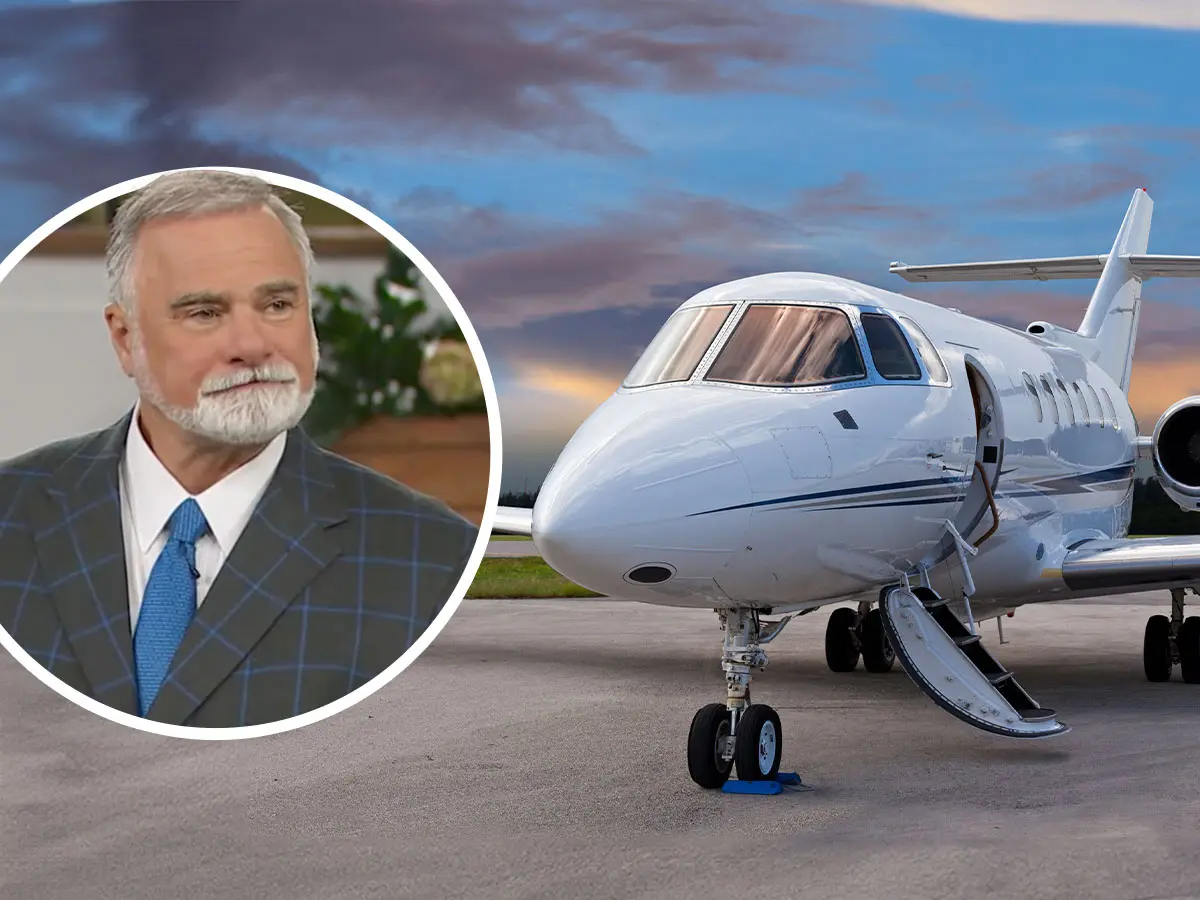Televangelist Keith Moore, known for his ministry Faith Life International, has made headlines once again with the acquisition of a third private jet. The recent purchase of a used Dassault Falcon 7X, priced at $17.5 million, has sparked renewed debate over the use of ministry funds for luxury items. This latest addition to Moore’s fleet, which already includes a Dassault Falcon 900 EX and a Raytheon 390, raises questions about the ethics and transparency of such expenditures within religious organizations.
Faith Life International, which operates churches in Sarasota, Florida, and Branson, Missouri, successfully raised $10 million through a fundraising campaign to acquire the Falcon 7X. The jet, which was listed on the AircraftVx website, is significantly less expensive than a new model, which could cost as much as $60 million. The Federal Aviation Administration (FAA) disclosed the purchase when it certified the jet in May, revealing the tail number change from N1902C to N37KM, with the latter reflecting Moore’s initials.
Moore, a licensed pilot certified to fly all three jets owned by his ministry, uses these aircraft primarily for travel between his church locations in Florida and Missouri. While some argue that private jets offer convenience and efficiency for pastors with demanding travel schedules, critics point out that the cost of maintaining such luxuries far exceeds the expense of commercial travel.
A comparison of ticket prices reveals a stark contrast between the costs of private jet travel and commercial flights. According to Kayak, one-way flights from Sarasota to Springfield-Branson National Airport can be as low as $268, with most tickets ranging from $424 to $449. Given that the average American airfare for 2023 was $382, the $10 million raised for Moore’s jet could have instead purchased over 26,000 plane tickets.
Moore’s acquisition of the Falcon 7X is not the first time a televangelist’s private jet purchase has stirred controversy. In 2015, Creflo Dollar, another prominent televangelist, faced widespread criticism after asking for 200,000 donors to contribute $300 each to fund a new $65 million Gulfstream G650 jet. The backlash led Dollar to abandon the purchase of the G650, opting instead for two used jets: a Gulfstream G-IV and a Learjet 60, the latter of which has since been sold.
Despite the negative attention surrounding his 2015 campaign, Dollar’s ministry recently purchased another high-end jet, a 2010 Gulfstream GV-SP (G550), for $18.65 million. The FAA certified this jet in June, but unlike the previous campaigns, Dollar did not publicly disclose this purchase to his congregation at World Changers Church International or his television audience.
Televangelists like Moore and Dollar lavishly spend on private jets, raising important ethical questions. Ministries, which often rely on donations from congregants and supporters, are expected to steward these funds responsibly. The purchase of multi-million-dollar jets, especially in the absence of transparency or clear justification, can erode trust and invite scrutiny from both within and outside the religious community.
Critics argue that such expenditures reflect poorly on the church’s witness, especially when juxtaposed against the needs of the poor and marginalized. The funds used to purchase these jets could potentially have a significant impact if redirected toward charitable causes, community outreach, or other ministry-related endeavors.
The acquisition of luxury items by high-profile televangelists has broader implications for evangelical Christianity. It contributes to the perception that some leaders prioritize personal comfort and prestige over the mission of the church. This, in turn, can alienate believers and foster skepticism among non-believers.
As televangelists like Moore and Dollar continue to expand their fleets of private jets, the debate over the appropriate use of ministry funds is likely to intensify. While some defend these purchases as necessary for the effective operation of large ministries, others see them as emblematic of a troubling trend towards excess and self-indulgence within certain segments of the evangelical community.



